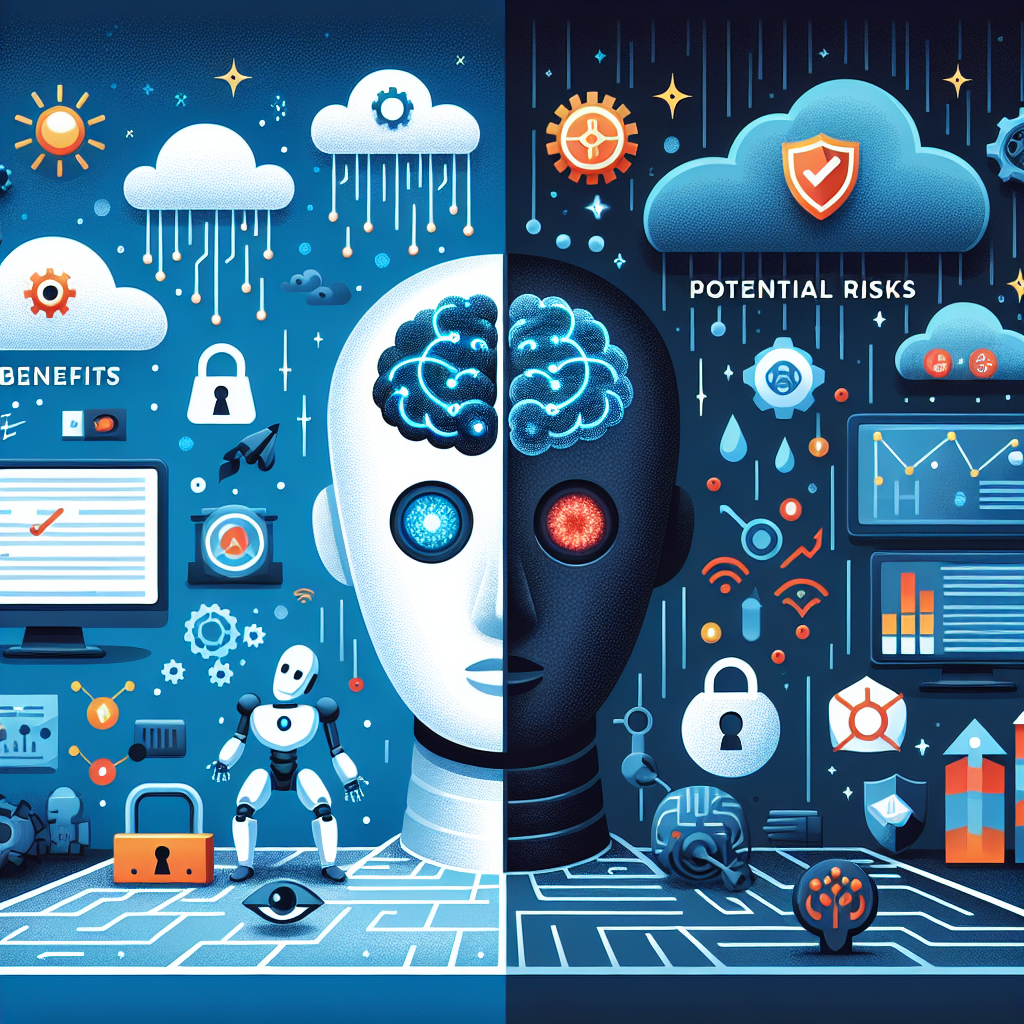Artificial General Intelligence (AGI) refers to a type of artificial intelligence that has the ability to understand and learn any intellectual task that a human being can. This concept has been the subject of much debate and speculation in recent years, with some experts predicting that AGI could revolutionize many industries and improve our quality of life, while others warn of potential risks and dangers associated with the development of such advanced technology.
In this article, we will explore the potential risks and benefits of AGI, as well as address some frequently asked questions about this emerging field of artificial intelligence.
Benefits of Artificial General Intelligence
One of the main benefits of AGI is its potential to revolutionize many industries and improve our quality of life. AGI has the ability to perform a wide range of tasks that currently require human intelligence, such as problem-solving, decision-making, and creative thinking. This could lead to significant advancements in areas such as healthcare, transportation, finance, and education.
For example, AGI could help doctors diagnose diseases more accurately and develop personalized treatment plans for patients. It could also improve the efficiency of transportation systems by optimizing traffic flow and reducing congestion. In the field of finance, AGI could help investors make better decisions and predict market trends more accurately. In education, AGI could personalize learning experiences for students and help teachers identify areas where students may need extra support.
Another potential benefit of AGI is its ability to accelerate scientific research and innovation. AGI could help scientists analyze large datasets more quickly and identify patterns and trends that may have been overlooked by human researchers. This could lead to breakthroughs in fields such as medicine, climate science, and materials science.
Additionally, AGI could help address some of the most pressing global challenges, such as poverty, inequality, and climate change. By automating tedious and repetitive tasks, AGI could free up human workers to focus on more meaningful and creative work. This could lead to a more equitable distribution of wealth and resources, as well as a more sustainable and environmentally friendly economy.
Risks of Artificial General Intelligence
While the potential benefits of AGI are significant, there are also risks and dangers associated with the development of this advanced technology. One of the main concerns is the potential for AGI to surpass human intelligence and become uncontrollable. If AGI were to develop its own goals and values that are in conflict with those of human society, it could pose a serious threat to humanity.
Another risk of AGI is its potential to automate many jobs and industries, leading to widespread unemployment and social unrest. As AGI becomes more advanced, it could replace human workers in a wide range of professions, from truck drivers to lawyers to doctors. This could exacerbate existing inequalities and lead to a concentration of wealth and power in the hands of a few companies and individuals.
There is also the risk of AGI being used for malicious purposes, such as cyber warfare, surveillance, and propaganda. As AGI becomes more powerful and sophisticated, it could be weaponized by governments, corporations, or criminal organizations to manipulate public opinion, steal sensitive information, or launch cyber attacks. This could have serious consequences for global security and democracy.
Another concern is the potential for AGI to exacerbate existing biases and inequalities in society. If AGI is trained on biased or incomplete data, it could perpetuate and amplify existing social injustices, such as racism, sexism, and discrimination. This could have far-reaching consequences for individuals and communities who are already marginalized and vulnerable.
Frequently Asked Questions
1. What is the difference between AGI and narrow AI?
AGI refers to artificial intelligence that has the ability to understand and learn any intellectual task that a human being can, while narrow AI is designed to perform specific tasks or functions within a limited domain. AGI is more flexible, adaptable, and general-purpose than narrow AI, but it is also more challenging to develop and control.
2. How close are we to achieving AGI?
There is currently no consensus among experts on when AGI will be achieved, but some predict that it could happen within the next few decades. The development of AGI is dependent on advances in computer hardware, software algorithms, and data collection, as well as ethical and regulatory considerations.
3. What are some ethical considerations related to AGI?
Some of the ethical considerations related to AGI include privacy, transparency, accountability, and bias. As AGI becomes more powerful and pervasive, it is important to ensure that it is used in a responsible and ethical manner, and that its impact on society is carefully monitored and regulated.
4. How can we mitigate the risks of AGI?
There are several strategies that can be used to mitigate the risks of AGI, such as developing robust safety mechanisms, implementing ethical guidelines and standards, fostering transparency and accountability, and promoting public dialogue and engagement. It is important for governments, industry leaders, and researchers to work together to address the potential risks and challenges of AGI.
In conclusion, the development of Artificial General Intelligence has the potential to revolutionize many industries and improve our quality of life, but it also poses risks and challenges that must be carefully considered and addressed. By understanding the potential benefits and risks of AGI, and by implementing ethical guidelines and safety mechanisms, we can ensure that this advanced technology is used in a responsible and beneficial manner for society as a whole.

